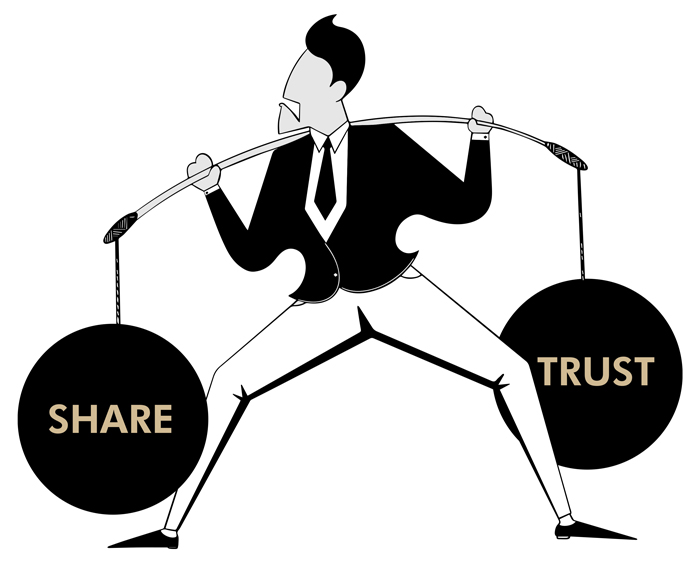The Scottish industrialist Andrew Carnegie was an incredibly successful businessman and philanthropist who led the growth of the steel industry in the United States in the late 19th century. After the success of his steel empire, which established him as the richest man in America by 1902, he became a philanthropist and gave away more than 90 percent of his fortune. Ahead of his time, Carnegie was a strong believer in delegation and empowering his employees. Once, a friend told Carnegie that he got to work at 7:00 each morning. Carnegie replied, “You must be a lazy man if it takes you ten hours to do a day’s work. What I do is get good men and I never give them orders. My directions do not go beyond suggestions.”
 Good managers know how to accomplish each task that is required of them. Great managers know that they, themselves, shouldn’t be the ones completing every task for two reasons: 1) they trust their employees to handle the tasks, possibly better than themselves, and 2) they have confidence that their employees know how to manage their own schedules.
Good managers know how to accomplish each task that is required of them. Great managers know that they, themselves, shouldn’t be the ones completing every task for two reasons: 1) they trust their employees to handle the tasks, possibly better than themselves, and 2) they have confidence that their employees know how to manage their own schedules.
For those of us with control issues, learning to delegate takes time, practice, and skill. Managing our own worries about whether or not a task will be done well and if our employees are dependable can be a challenge. Losing that mindset of “it will never be done as well I could do it” can hold us back, and we’ll never learn to delegate if we don’t try. We have to trust that we’ve put the right team in place to tackle these responsibilities within the framework that we have created. And just think about all the time that will open up for more important things such as growth strategies and planning the next phases of the business.
"A star wants to see himself rise to the top. A leader wants to see those around him rise to the top.” -Simon Sinek, author and motivational speakerIn order to be an adept delegator—whether you’re the company owner or a manager—you must be able to communicate, listen, give feedback and guidance, train, and trust. You’re not necessarily telling them how to do it, but why it needs to be done. CLEARLY communicating why you are assigning the task, what the task is, and what the expectations are is paramount to ensuring that it gets completed correctly and on time. Effective oral and written communication skills are a necessity. And don’t forget that listening is a critical component of communication.
It’s important to remember that when we delegate an assignment to someone else, it doesn’t mean that we are no longer responsible, or that it’s off our plate and we can forget about it. When a task is delegated, managers should check in with their employees along the way to ensure that goals and timelines are going to be met and to offer advice and help whenever necessary. Once the task is complete, provide clear feedback on what was done well and discuss where it could have been improved and why. Providing this type of constructive criticism and direction will help employees perform better the next time they are faced with similar responsibilities.
An essential part of the delegation process is knowing which tasks can be handed off and which ones need to remain with you. Some responsibilities require a certain level of insight or expertise that can’t be passed on unless to another professional, such as legal or accounting issues. However, don’t be reticient to hand off tasks that may require a small bit of training from you or your manager: Effective training the first time around opens up your schedule the next time it needs to be done.
"The inability to delegate is one of the biggest problems I see with managers of all levels.” - Eli Broad, former CEO of SunAmerica and KB HomeThe final trait a leader needs to have in order to properly delegate is trust—having confidence that you and your team are working toward the same goals and objectives based on the company culture you have cultivated. Trust that all employees are performing their work with diligence and professionalism, becase at its core, trust is the opposite of micromanaging. It’s important to have confidence that your employees are doing the right things and will come back with expected results. Without trust, you spend time and energy following up and managing details you shouldn’t be.
Without delegation, it will be difficult for your company to grow and for you to evolve and mature as a leader. If you find yourself resisting the idea of handing off tasks to your trusted team, ask yourself what is holding you back. Do you feel that your employees have not been trained sufficiently, or do you tell yourself that the time it will take to explain the task to an employee is not worth it? Identifying the best responsibilities to delegate can be helpful. Start with those that are not a natural fit for you, and choose someone who has experience and skills in that area. The other type of task that is a good option for delegation are those that anyone can do. Take the time to delegate, and you will free your time up and empower your employees to take on more responsibility. [CD0220]
Stephanie Carnes is a certified MBTI consultant and the client solutions provider for The LMC Group. She can be reached at stephanie@lmc.group. Christina Fiorenza is the HR director for The LMC Group. She can be reached at christina@lmcpeople.com.

